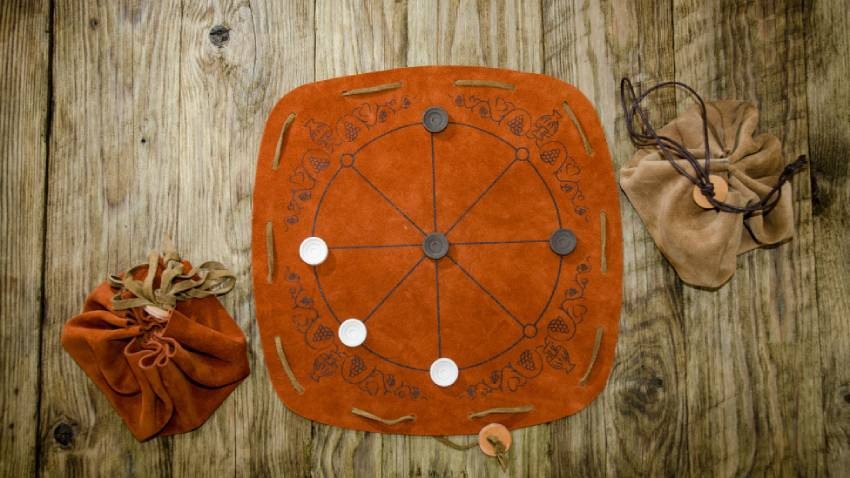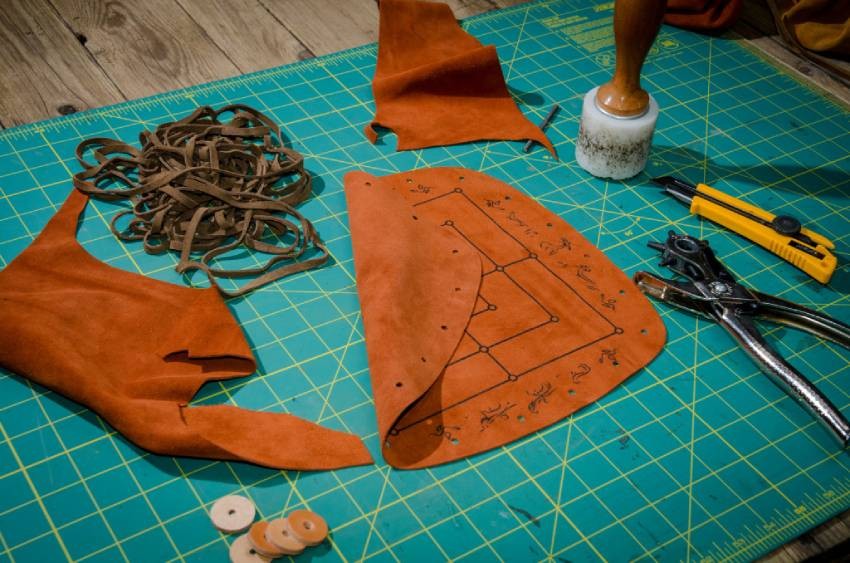 2
2
The ancients were not much different from us. The times were also hard and people were primarily concerned with their livelihood. However, they also had time for entertainment. This has been proven by the archaeological findings of various games in Bulgarian lands since the Eneolithic. Now a group of young people, in cooperation with museum workers and archaeologists, is trying to revive the past by restoring these games for the new generation of Bulgarians. "So far, we have developed and provided games for the educational programs of ten historical museums throughout the country," says Rositsa Marinova, program coordinator of the Center for Informal Education and Cultural Activities ALOS.

She recalls how she once became very intrigued by an exhibit in the History Museum in Kyustendil - a ceramic figurine that was used for playing a game. It had 16 round holes and small round ceramic balls of the right size. The artifact was found in the Eneolithic settlement of Slatino and dates back to the Stone and Copper Age. Rositsa Marinova decided to modernize the game in order to awaken the curiosity of young people about our ancient past.
"The interesting thing is that the version found in Bulgaria is from the 5th millennium BC. Similar games have been found in India and Ancient Egypt, but they date back to the 2nd millennium BC. So, if we assume that the version found in Bulgaria is something like the old prototype of this game, it means that it is about 3,000 years older than the ancient Egyptian one. The ALOS Center has modernized it for educational purposes so that young visitors to the Kyustendil Museum can play with it. Competitive tournaments are also organized," Rositsa says.

Alquerque, the Roman game of Rota, Nine Men's Morris - these are names of board games that Rositsa and her team studied. These games were spread on the territory of Bulgaria during antiquity and the Middle Ages. Their modern versions are handmade, entirely from natural materials - leather suede, ceramics and glass. "On the game with the pits, for example, we have presented signs from the Eneolithic, and also fragments of an interesting star calendar with elements from the constellations of Ursa Major and Cygnus. The idea is for a person to get immersed in the atmosphere of prehistoric times,” Rositsa says.

How do modern people react to these ancient games?
"They react in a very cognitive way and this is natural, because these are ancient strategy games that have been developing young people's abilities for concentration, strategic thinking, consistency and dynamism for a long time. Some of the games were even used by the legionnaires to train their combat skills before battle," Rositsa Marinova says.

And here is a curious fact – researchers have come across games in the form of drawings or graffiti in the most unexpected places. For example, Alquerque was found carved on the fortress walls of the old Bulgarian capitals Pliska and Veliki Preslav. And the game Nine men's morris, known since the times of ancient Rome, was found carved on a stone bench in front of a rock monastery from the 8th - 11th century near Isperih, Rositsa also told us. In addition to the strategy games of the past, her team studied and adapted an old dice game. However, it was a gambling game in nature and is not suitable for students. "It seems that our ancestors found a way to spend their free time with their family, friends, children; to play and have fun, just like us in the hectic 21st century," Rositsa Marinova says in conclusion.
English: Al. Markov
Photos: alos.bg
People are increasingly freeing up space for technology that they manage and keep under control. Artificial intelligence is quickly settling into this shared space. AI has been entering classrooms in recent years to bring the..
Today, 2 April, on Autism Awareness Day, the Burgas Bridge will be illuminated in blue as a sign of empathy, the Municipality of Burgas announced. The day was established in 2007 by the UN General Assembly to ensure that every society creates..
April 1 was declared International Bird Day in 1906, under the International Convention for the Protection of Birds. The date symbolizes mankind's responsibility for the conservation and preservation of wildlife. Today, 119 years after its..
In 2024, Bulgaria has 15,737 foreign students, making up 8.6% of all current students in the country. By comparison, this share has doubled over the..
The eagerly-awaited Tulip Parade at the University Botanical Garden in Balchik is at its peak. This year’s parade includes more than 45,000 bulbs,..
Divers will clean the seabed around the port of Sozopol today, reports BTA. "Since 2018, we have been doing the cleaning, completely voluntarily, with..

+359 2 9336 661
